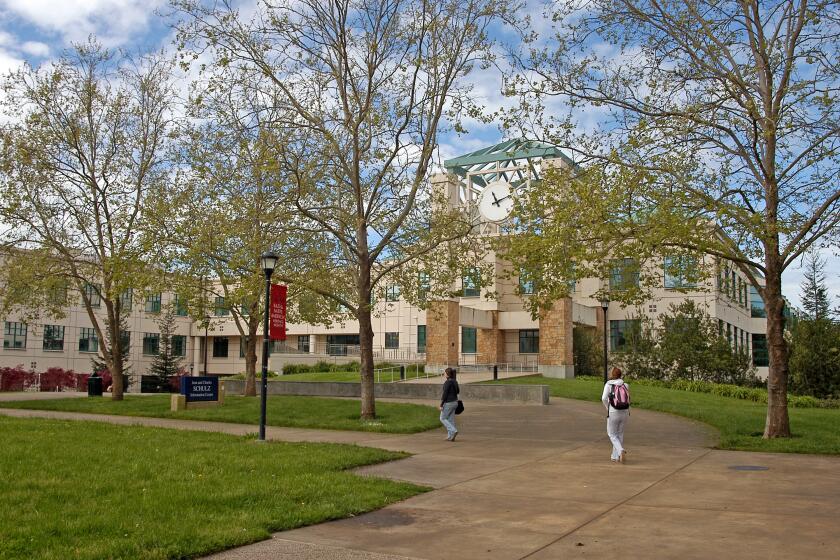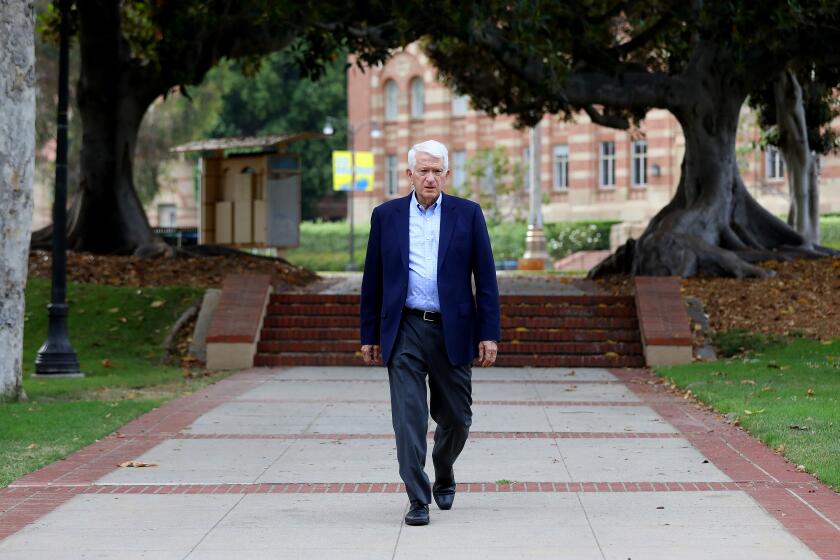Career Preparation Takes Studying and Some Elbow Grease
I recently surveyed my students to find out which career fields interest them most. Psychology was the top choice, followed by business, law and medicine.
These are all careers that teen-agers can start preparing for in high school by taking certain classes and gaining practical experience, according to people in these fields.
Those interested in psychology should take classes in psychology, (although not many high schools offer one), sociology and peer counseling. Physical science classes, including biology and chemistry, are also important because human behavior often has biological components.
Knowing oneself is also important before trying to understand others, said Dr. Francine Kirkpatrick, a clinical psychologist in Santa Monica. “(Students) should have some sense of their own way of relating to people, what their problems are in relating people and what their own intimate issues are,” she said.
Teen-agers have many opportunities to gain practical experience, including participating in peer counseling programs offered at many schools, volunteering at a neighborhood health clinic or sitting on crisis hot lines.
But the best preparation a teen-ager can have for working in a mental health field is being a camp counselor, Kirkpatrick said.
“(It’s) a wonderful thing for high school kids to do in summertime, where they can tend to the emotional needs in a daily life setting,” she said, “and (to see) if they like to pay attention to people’s emotional needs.” In many cases, counselors can be paid for their work.
“Business” is an impossibly vague term because it encompasses thousands of careers. But a banker and small business owner I talked with emphasized one important skill for all of them: the ability to write well.
Therefore, English and other writing classes are part of the necessary preparation, said Bill Mortensen, chairman and CEO at First Federal Bank in Santa Monica.
“(Students) should take as much practice as they can get doing a good job of expressing themselves in writing,” he said.
“You’ll have to write memos, letters to customers, and quite often you’ll have to write a report (or) recommendation.”
Mortensen also emphasizes mastering “basic arithmetic: percentages, addition, subtraction, multiplication.”
In addition, “calculus could be useful just in terms of problem-solving,” said Phil Bellomy, co-owner of Helmet House in Westlake. “The thought process you have to use to understand calculus would be helpful to you in business situations.”
Getting a summer job may seem rather common and unglamorous, but Bellomy and Mortensen say it is the best introduction to the world of business.
“Students learn that they are always going to have to answer to somebody, whether it’s an employer or customer. And the earlier they learn that, the better,” Bellomy said.
Added Mortensen: “What’s more important than learning a skill is learning now to adapt to the world of work . . . timeliness, proper dress and a general work decorum.”
English classes and the importance of writing well were also mentioned by Leo Hernandez, a personal injury attorney in Santa Monica, as being vital for a successful law career.
“We have to be persuasive with the written word (and) write a lot of motions, pleadings and appeals,” Hernandez said. “If the lawyer writes poorly or misspells a lot of words, he’s not going to make it.”
And if you plan to practice law in a culturally diverse area, such as Los Angeles County, then classes that teach about other cultures are crucial, said Rita Morales, a civil rights attorney and planning commissioner for the city of Santa Monica.
“That’s something you need in order to represent . . . different types of people,” Morales said. “Not all of your clients are going to be the same.”
Morales also suggested mastering a foreign language. She said Spanish-speaking lawyers have an extra advantage in California.
Getting practical experience in law often pays more than most typical summer jobs. As a file clerk or office clerk in a local law office, students can learn about the career and make $5 to $6 an hour.
The high school classes needed most for a career in medicine are obvious. Take as much science as possible, “especially biology and chemistry,” suggested Dr. Royal Dean, a family practitioner in Santa Monica.
But, Dean added, classes in psychology and philosophy are also good because “you’re dealing with the whole, thinking persons--not just a physical body.”
Because training for a medical career is expensive, tough and lengthy, it’s smart to make sure this is what you really want, and volunteering is a great way to find out.
“You could help around a clinic, assisting the doctor with certain procedures, translating, helping families that have little children who need watching over,” Dean said. “It’s not just about helping yourself decide on a medical career, but it’s about helping people, as well.”
Mary Yarber, who teaches English and journalism at an area high school, writes an occasional column for The Times.



